Cosmology
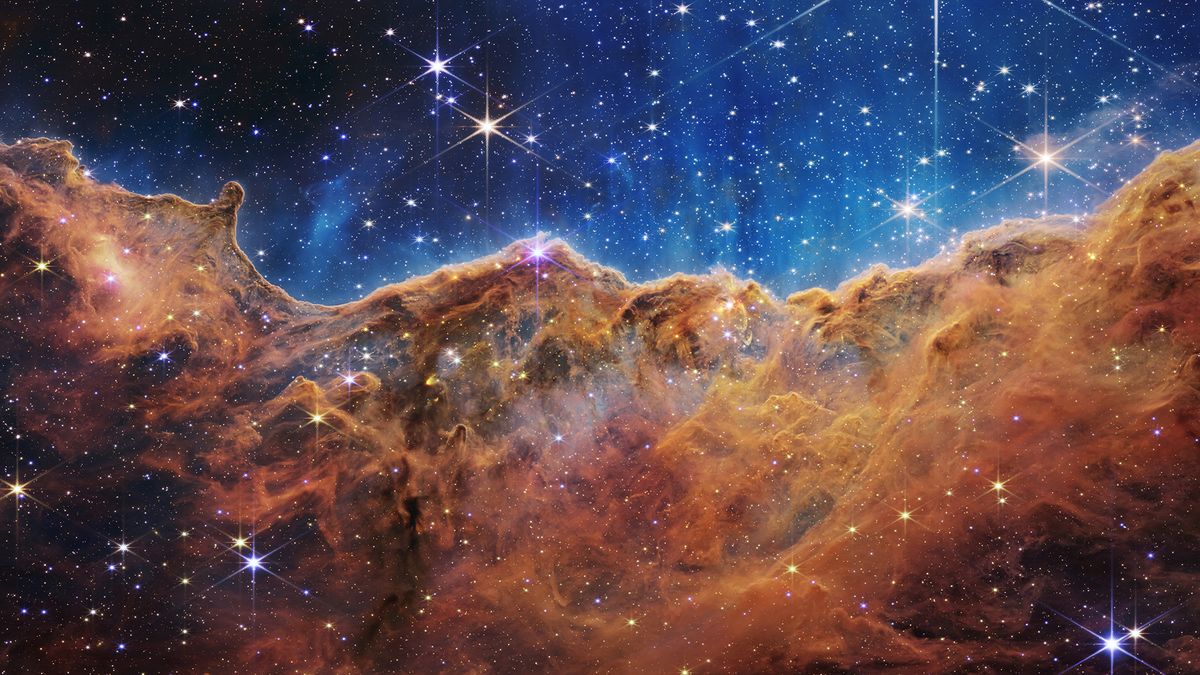
Cosmology is a branch of physics that grapples with the big questions on the nature of our universe, including where it came from and what will happen to it next. At Live Science, we make this complex and sometimes mind-bending science accessible, explaining everything from the speed of light to the multiverse theory, and describing all of the wild theories about the universe.
Our expert writers and editors also break down new developments in the field, whether it's how "Dark sirens" could solve one of the greatest mysteries in cosmology or why the launch of the Euclid space telescope is groundbreaking, with the latest cosmology news, features and articles.
Discover more about cosmology
—5 fascinating facts about the Big Bang, the theory that defines the history of the universe
—The James Webb telescope has broken cosmology. Can it be fixed?
Latest about Cosmology
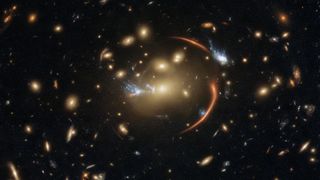
Our leading theory of dark matter may be wrong, huge new gravity study hints
By Paul Sutter published
New research using a space-time phenomenon predicted by Einstein presents evidence that the invisible backbone of the universe may be much "fuzzier" than we realized.
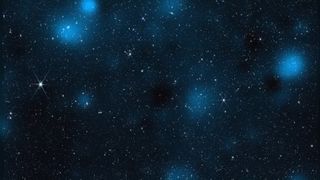
'Invisible scaffolding of the universe' revealed in ambitious new James Webb telescope images
By Joanna Thompson published
A team of researchers using the James Webb Space Telescope has produced the most detailed map of dark matter to date.
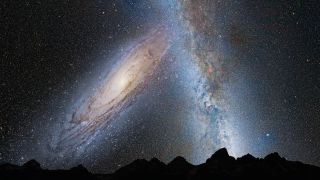
Every major galaxy is speeding away from us, except one — and we finally know why
By Ivan Farkas published
A vast, flat sheet of dark matter may solve the long-standing mystery of why our neighboring galaxy Andromeda is speeding toward us while our other neighbors are moving away from us.
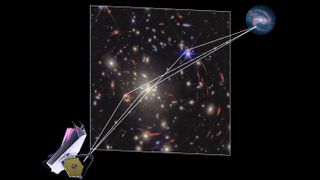
Astronomers spot 'time-warped' supernovas whose light both has and hasn't reached Earth
By Ivan Farkas published
Will two rare supernovas finally tell us how fast the universe is expanding? Perhaps, but we'll have to wait for it for them to 'reappear'.
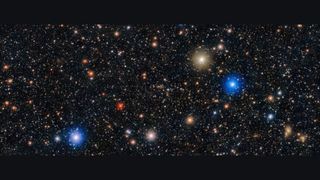
Standard model of cosmology holds up in massive 6-year study of the universe
By Skyler Ware published
The six-year Dark Energy Survey has released its full results, showing that two leading models of cosmology are equally valid — but both fail to explain one key observation.
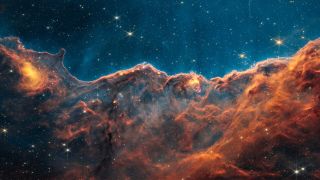
Our model of the universe is deeply flawed — unless space is actually a 'sticky' fluid
By Paul Sutter published
Our best models of the cosmos don't add up — but that could change if the universe is actually made of a viscous 'fluid,' a new paper suggests.
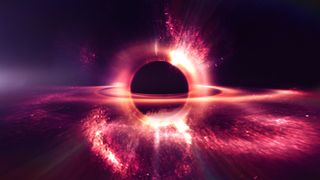
James Webb telescope saw black holes emerging from 'cocoons' near the dawn of time
By Skyler Ware published
The gaseous cocoons surrounding "little red dots" hint at their true nature, a new James Webb telescope study hints.
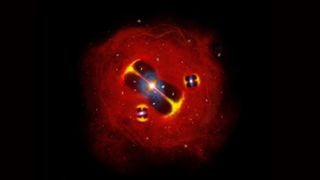
'How can all of this be happening?': Scientists spot massive group of ancient galaxies so hot they shouldn't exist
By Skyler Ware published
An inexplicably hot, fast-growing cluster of galaxies in the early universe has scientists questioning theories of galactic evolution.
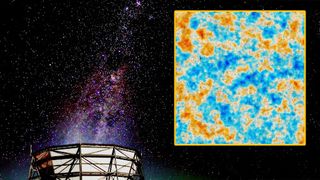
30 models of the universe proved wrong by final data from groundbreaking telescope
By Paul Sutter published
The Atacama Cosmology Telescope (ACT) in Chile has released its final batch of data after 15 years — and it proves that the Hubble tension, a rift in our understanding of the universe, is very real.
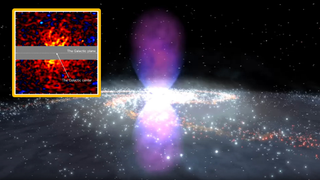
Did a NASA telescope really 'see' dark matter? Strange gamma-rays spark bold claims, but scientists urge caution
By Elizabeth Howell published
A new study says observations from the NASA Fermi space telescope suggest a halo of dark matter around the center of our galaxy, but more information is needed to confirm the result.
Get the world’s most fascinating discoveries delivered straight to your inbox.
 Live Science Plus
Live Science Plus










